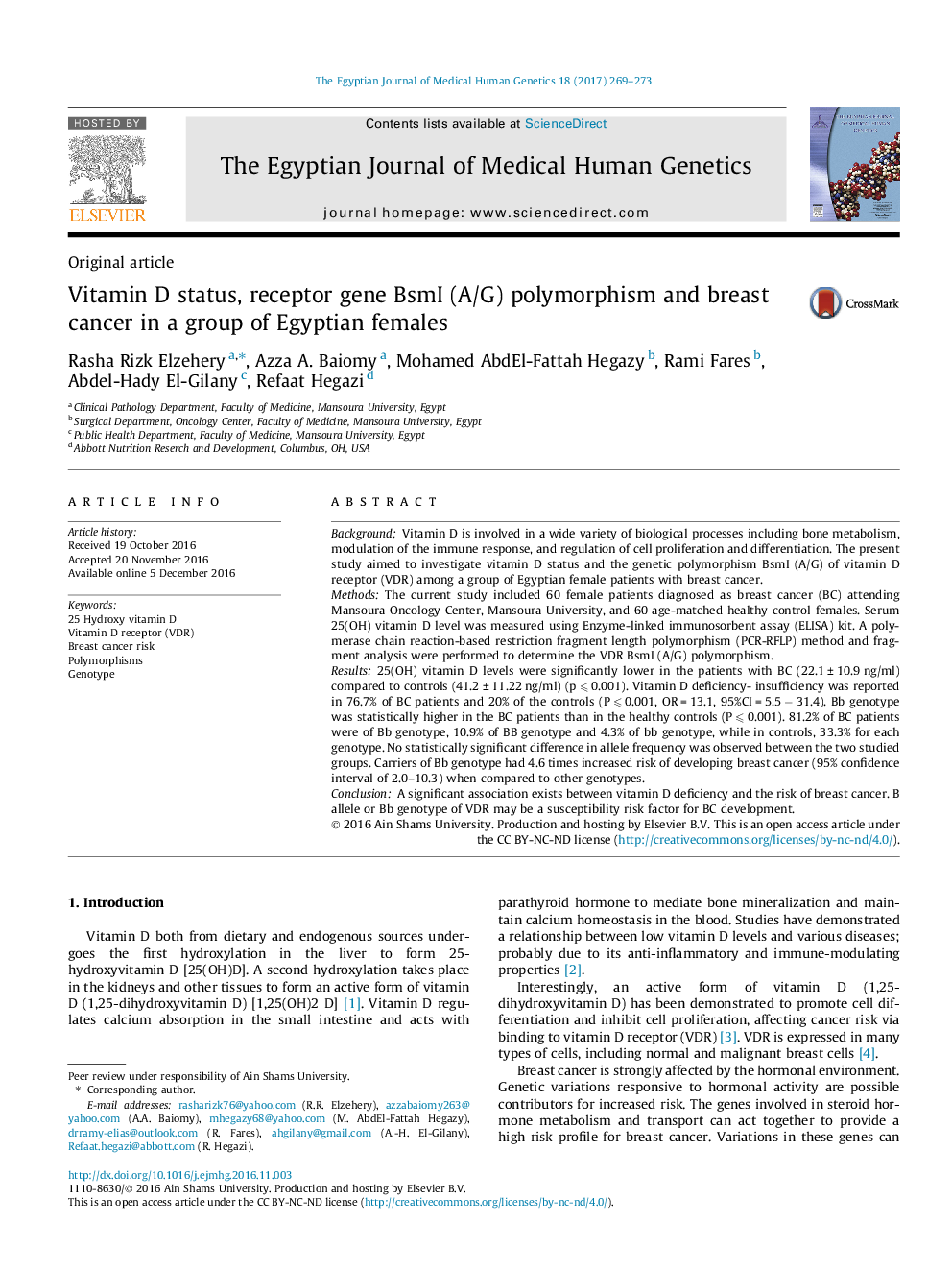| Article ID | Journal | Published Year | Pages | File Type |
|---|---|---|---|---|
| 5532092 | Egyptian Journal of Medical Human Genetics | 2017 | 5 Pages |
BackgroundVitamin D is involved in a wide variety of biological processes including bone metabolism, modulation of the immune response, and regulation of cell proliferation and differentiation. The present study aimed to investigate vitamin D status and the genetic polymorphism BsmI (A/G) of vitamin D receptor (VDR) among a group of Egyptian female patients with breast cancer.MethodsThe current study included 60 female patients diagnosed as breast cancer (BC) attending Mansoura Oncology Center, Mansoura University, and 60 age-matched healthy control females. Serum 25(OH) vitamin D level was measured using Enzyme-linked immunosorbent assay (ELISA) kit. A polymerase chain reaction-based restriction fragment length polymorphism (PCR-RFLP) method and fragment analysis were performed to determine the VDR BsmI (A/G) polymorphism.Results25(OH) vitamin D levels were significantly lower in the patients with BC (22.1 ± 10.9 ng/ml) compared to controls (41.2 ± 11.22 ng/ml) (p ⩽ 0.001). Vitamin D deficiency- insufficiency was reported in 76.7% of BC patients and 20% of the controls (P ⩽ 0.001, OR = 13.1, 95%CI = 5.5 â 31.4). Bb genotype was statistically higher in the BC patients than in the healthy controls (P ⩽ 0.001). 81.2% of BC patients were of Bb genotype, 10.9% of BB genotype and 4.3% of bb genotype, while in controls, 33.3% for each genotype. No statistically significant difference in allele frequency was observed between the two studied groups. Carriers of Bb genotype had 4.6 times increased risk of developing breast cancer (95% confidence interval of 2.0-10.3) when compared to other genotypes.ConclusionA significant association exists between vitamin D deficiency and the risk of breast cancer. B allele or Bb genotype of VDR may be a susceptibility risk factor for BC development.
